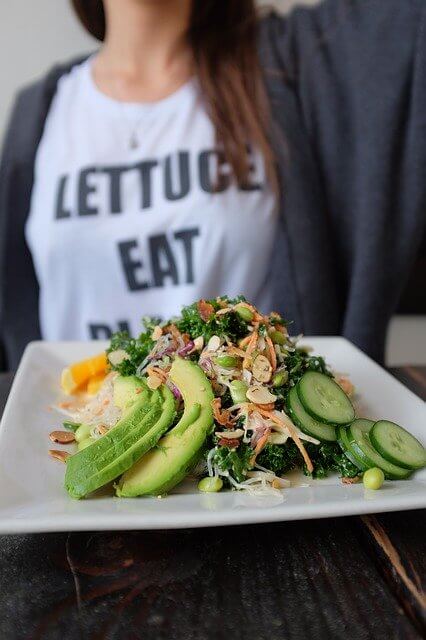Stopping Gout Together › Forums › Help My Gout! The Gout Forum › Almost a vegan, how to make it a gout safe diet
Tagged: Forum for Gout Foodies, Vegan Gout Forum
- This topic has 5 replies, 4 voices, and was last updated 5 years, 7 months ago by
 Keith Taylor.
Keith Taylor.
-
AuthorPosts
-
-
September 6, 2017 at 3:32 am #5615
 StephenParticipant
StephenParticipant
I eat almost a vegan diet, as I care give for my wife, she being vegan, most of what I cook/eat is vegan. I am not opposed to radically changing what I eat, I really need to find a diet that is friendly to my gout. How should I begin here? List all the foods I eat??
Looking forward to some help, it has been a hard few months…all the best
Stephen

Which food is good for gout?
-
September 6, 2017 at 6:12 am #5618
nobody
ParticipantYou could list what you eat and in what amounts.
Or we could start with the general principles.
It’s your call…It would be helpful to know if you are overweight and if you have other health issues which impact what you should eat (cholesterol, diabetes and so forth).
A warning: diet alone is unlikely to be sufficient to fix your gout. But of course it’s better to work on that than to do nothing.
It would be worth reviewing every medicine (whether “natural” or not) and recreational drug you take for a potential impact on uric acid. If you consume alcohol for instance, you should quit.
-
September 6, 2017 at 7:04 pm #5621
 Brad KeckParticipant
Brad KeckParticipantI have found that greatly reducing meat in the diet has been very helpful. I try now to keep my meat consumption to 6 oz per day or less, and this – along with a daily dose of cherry juice has done a lot for my gout management. I haven’t had an attack in several months, but can still detect swelling/stifness in the big toe now and then.
Prior to reducing the meat content of my diet, I over-blamed beer consumption, which also must be limited, but a pint of craft beer is only a few mg of purines. On any given day, I can have a beer or I can have some meat – but very careful about having both :}
Hydration is incredibly important, as it effects how well one excretes uric acid and the concentration of uric acid in the blood directly.
If you’re nearly vegan now, what do you think is your most problematic food? Mushrooms, artichokes, broccoli and legumes are known to be pretty high in purines, by the way!
Hope this helps, keep posting!
-
September 7, 2017 at 8:02 am #5624
 Keith TaylorParticipant
Keith TaylorParticipantStephen, this vegan diet idea worries me. Because we know the average vegan diet is among the worst for gout. But, we also know that a well-balanced, plant-rich diet is generally very healthy. So, what’s going wrong?
I think the answer lies in “well-balanced”. Because in my experience vegans tend towards the exclusion of animal products without planning nutritional intake properly.
Unfortunately, I have no nutrition qualifications. But, I consider myself a diligent researcher. Also, I work with 2 groups of nutritionists in my Foodary project. So, my first look at how I might help reveals:
Compared with other vegetarian diets, vegan diets tend to contain less saturated fat and cholesterol and more dietary fiber. Vegans tend to be thinner, have lower serum cholesterol, and lower blood pressure, reducing their risk of heart disease. However, eliminating all animal products from the diet increases the risk of certain nutritional deficiencies. Micronutrients of special concern for the vegan include vitamins B-12 and D, calcium, and long-chain n–3 (omega-3) fatty acids. Unless vegans regularly consume foods that are fortified with these nutrients, appropriate supplements should be consumed. In some cases, iron and zinc status of vegans may also be of concern because of the limited bioavailability of these minerals.
In other words, vegetarian diets are basically gout-friendly. But cutting out all dairy means you have to source essential nutrients by other means. So, it begs the question: are you prepared to commit to proper nutritional planning?
If so, I guess it’s best to start with current diet analysis. So, do you want to consult a qualified nutritionist to do this, or do you want me to get involved? Whatever you do, you have to ignore unresearched statements about vegetable purines. Because they are an insignificant distraction for you.
-
September 7, 2017 at 12:23 pm #5633
nobody
ParticipantVegetarian diets are basically gout-friendly because they’re not vegan diets.
You know the research suggesting vegans have higher uric acid. You know that not consuming dairy is correlated with having higher uric acid. That may be the most significant difference between vegan and non-vegan diets as far as uric acid is concerned. But you also know that some plants contain problematic amounts of purines. Yet you have decided that these purines are not a problem. Talking about unreasearched statements, why would purines affect the body differently because they’ve come from a plant?
In many cases, yes: dietary purines are a distraction. Certainly purines from plants isn’t the first thing one ought to look at. But someone who can’t tolerate meds and has uric acid test results that high may benefit from an unusually strict diet.Unrelated but in case you didn’t know, Stephen: Brad is correct about drinking water. In my mind, that’s not filed under “diet” so I forgot to mention it.
-
September 8, 2017 at 4:50 am #5638
 Keith TaylorParticipant
Keith TaylorParticipantFor the avoidance of doubt, Stephen, I should reiterate that you will be best served by working directly with a professional nutritionist to ensure your vegan diet is suitable for you. Then, if you like, I can share the research links with your nutritionist about the metabolism of different types of purines.
Also, a professional nutritionist will assess your fluid intake requirements as part of their diet review. Significantly, some people find blood pressure is lowered by insufficient fluid intake. Although this is not simple because it requires simultaneous assessment of sodium intake and other minerals.
But, if you can’t find a suitable nutritionist, we can review all the relevant research together. However, we will need to start with a 3-day diet review, which I can arrange with you. Usually, I consider 2 week days and 1 weekend day, depending on your lifestyle. Please note that diet, in nutritional terms covers all intake of food and drink, including supplements, as well as exercise.
-
-
AuthorPosts
The forum ‘Help My Gout! The Gout Forum’ is closed to new topics and replies.
